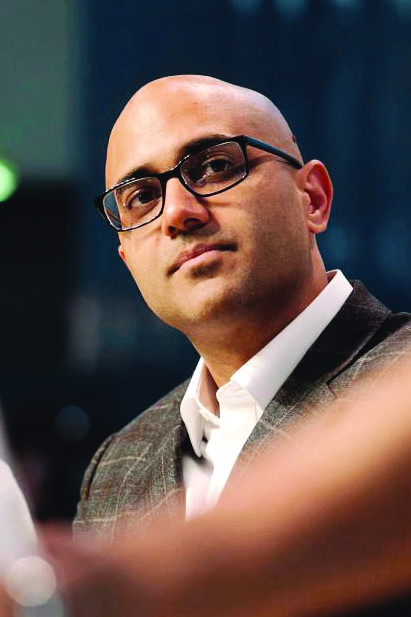
Sean Martinez | Staff Writer
Ayad Akhtar has found success in many different creative spheres, including playwriting, book writing and film and television. On Tuesday, April 9, Akhtar visited Western Oregon University to talk about some of his most famous works. During a sit-down interview, Akhtar discussed his passion for literature as well as his thought processes as he wrote his plays.
Around the age of 15, Akhtar began to write, inspired by a high school teacher. Attending college to pursue his dream in theater, he knew he was destined to write a play, but he did not know where to start.
“I often say a good idea for a story is the meeting point between two or three ideas,” Akhtar said. He waited for his gathered ideas to converge before he began writing his most successful play to date.
“Disgraced,” which was released in 2012, won the Pulitzer Prize for Drama in 2013. The play highlights the conflicts that arise when identity interferes with religion.
“One of the reasons “Disgraced” ended up being (so popular) is because it foresaw what was happening politically in America before it happened,” Akhtar stated.
Akhtar’s goal when writing is to keep the audience engaged and thinking, which is why he rewrote the ending for “Disgraced” thirteen times to ensure it would. After audiences witnessed the complexity of the play, talkbacks were enforced so viewers could engage with Akhtar.
“I was constantly tweaking and shaping the play based on my experiences of seeing it with audiences,” Akhtar stated.
Later that night, Western’s Jensen Lecture Series hosted “An Evening with Ayad Akhtar,” as he continued to shed more light on “Disgraced,” as well as “A War Within,” released in 2005, and “The Invisible Hand,” released in 2015. He was interviewed live on stage by theater professor Kent Neely, who then took questions from the audience. Akhtar appreciated the uncertainty of the questions he was asked.
“I don’t need to see (the questions). I think the more spontaneous the dialogue is, the better,” Akhtar admitted. He proceeded to answer questions concerning his life experiences.
Despite all of Akhtar’s success, it never came easy. Even with encouraging parents, it took twenty-three years for Akhtar to finally feel comfortable as a writer. It was during Akhtar’s 20s when the real struggles started: his grandparents berated his parents for Akhtar not pursuing a career that was economically rewarding, and for not knowing what to write about. In his 30s, Akhtar realized writing was a way to express his beliefs.
“Getting perspective on your own experience and understanding what’s valuable in it for other people to know is a huge lesson,” Akhtar concluded.
Contact the author at smartinez17@wou.edu
Photo courtesy of Ayad Akhtar

